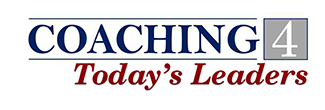
The majority of coaches that I’ve trained and worked with started out part-time. They added coaching to their already busy schedule, a half-day or day at a time. When that time filled up, they couldn’t add any more clients.
So when is the time to take that leap into full-time coaching and let go of your other work? That’s a very real tension all coaches have to address. For me, I’ve made multiple transitions, beginning when I went from being a full-time pastor to being a full-time coach.
I started with one day of coaching. So how did I pick a day that would work for everybody? Well, I discovered that if people wanted to work with me, they would make it work. On that one day, I worked morning, afternoon, and evening to increase my capacity. It’s not sustainable, but what do you do? I learned that I had to just keep working the plan – to one day transition to full-time coaching – and to stay focused.
I filled the day, but it didn’t always stay that way. New clients would arrive, and current clients would leave. Sometimes I had to say to people, “I’m sorry, I’m booked now but in two months I have an opening,” and you know what? They were willing to wait.
Working within the parameters of that one day forced me to be creative, such as doing some group work. And then came my big break that swung the door open wide. And that is what happens for some people. In my case, it was a leader hiring me to coach 38 people over the course of 18 months, coaching each person twice a month. You just can’t do that in one day per week. It forced me to make the change.
Until then, it was a three-year period of getting new clients and losing clients. So what does it take not to throw in the towel when you’re in this place? Keep your eye on the prize, and focus on what you want for your coaching business. And be creative! When I made my first transition 20 years ago, there were not as many options as there are now:
- If you’re a new coach, there are organizations that will actually find clients for you.
- You may be able to create coaching opportunities internally at the place where you already work. One of our coaching students did exactly that, and she’s now developing a whole cohort of internal coaches.
Training
When you’re working towards making the leap to full-time coaching, here’s where a coaching credential and training really shows its worth. It gives you legitimacy, and it also gives you the confidence of knowing a coach trainer is going to be watching you coach. Maintaining a coaching credential means you’re committing to ongoing training and investment in yourself. And what most coaches do is as you earn coaching credentials and get more training, you adjust your fees.
Work that plan
If you know your goal is to eventually coach full-time, you must understand your numbers and do the math. You have to do that. You need to know how much income you need to bring in, taking into consideration tax obligations, business expenses, etc., and then determine how many clients that means you need to be coaching.
Some financial experts recommend building up a nest egg or savings account that represents three to six months’ worth of income, i.e., the income you’re now earning in your other full-time work. That can give you the safety net to handle the ebb and flow of one client comes, two clients go.
Filling your schedule is only part of the story
When new coaches and student coaches talk about building their business, they tend to focus only on the clients they need right now. What’s even more important is the clients you will need going forward. And that requires a sustainability strategy. Sustainability is about building relationships with potential clients and referral sources and keeping those relationships warm with frequent contact. It takes time to build these systems and routines. But they are so worth it.
Transition, continued
Transitions don’t stop once you’re coaching full-time. It’s common to have multiple transitions throughout your work life. For me, the next significant one was going from being a coach to being a coach trainer. I still do both things, and how much I do of each thing depends on the market.
For me, every three or four years I like to step back and look at whether the way I’m doing things is working, or is something else emerging, or is the market itself emerging? That is the process that led to my transition from coaching clergy, to also coaching business leaders.
What has been your experience with transitions in your coaching career? Are you thinking about transitioning now? Share your thoughts!

 The Power of a Test Drive
The Power of a Test Drive
This was a brilliant article. I am approaching the point of needing to leave a job (that also carries my medical benefits) so there is that slight hesitation voice that says “What if you dont earn enough to purchase insurance?” And then that keeps you in a state of inaction. That’s my status now.
I completed the exam during the summer and have my ACC now, and am very excited and proud of that accomplishment!
Growing my coaching business to the point I can leave my full time job and be a coach FT is my goal. I have also been writing so I want to do both FT. It has been a very slow process, as my FT job and caring for my mother take up a lot of my time. However, I don’t want to throw in the towel!
I like the idea of picking one day to focus on coaching. So, my transition is slow but steady. I feel like it will gradually continue to grow and be my FT career. I have the faith to keep going and want this so much.
Thank you for sharing your stories!
Victoria
Great job! Keep working the plan. You’re getting there.